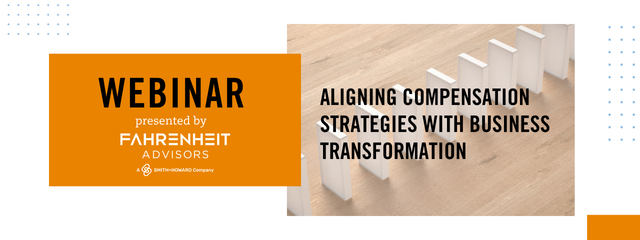Making Business Process Automation Easy for Finance and Accounting

A decade ago, the benefits of finance and accounting automation — like saving time and money — were available only to big Fortune 500 companies. Fast-forward to today and technological advancements now allow companies of any size to harness the benefits of automation.
In fact, in a Q1 2022 poll of 450 business leaders, nearly half said their company is pursuing transformation via finance automation in 2022.
So why haven’t you made finance and accounting automation a priority for your business yet?
The fear factor is a big hurdle — fear of complex implementations requiring artificial intelligence or machine learning plus massive IT teams to manage the technology. The truth is you don’t need any of that to get started with business process automation. Today’s options are much simpler, much easier, and much more intuitive to launch, use, and maintain.
Instead of thinking about automation as big, scary Technology, I like to think of it as “technology with a little t.” It’s still tech, but much more friendly.
I know concerns about time and budget are also barriers to automation. But today’s businesses simply must prioritize business process automation if they want to stay on pace with the market — and certainly if they want to get ahead. (Read more in our blog “Big Benefits of Business Process Automation.”) The truth is you just can’t afford not to implement automation any longer.
So how can you go about making business process automation easy for finance and accounting? My advice is to follow the paper. But first let’s look at the benefits.
WHY FINANCE AND ACCOUNTING AUTOMATION?
Who doesn’t want to save time and money — arguably the two biggest benefits of business process automation? In a recent Wall Street Journal article, the head of finance for Google said it best when she said their automation strategy is focused on how automation improves processes, helps make finance a better partner to the business, and allows them to reinvest time savings into other business challenges. Granted, Google is among the biggest companies in the world — but you don’t have to be Google to reap these key benefits for your own business. Really.
Automation also helps minimize errors, which not only contributes to saving time and money — via rework when reporting is inaccurate, for example — but also protects your business, your partners, and your stakeholders. Human error is inevitable, so the more you can take humans out of repetitive, manual processes, the fewer of those errors are possible. Errors can also lead to employee frustration, loss of investor confidence, and increased audit fees, among other consequences no business has on its wish list.
Let’s look at the benefits of automation in finance and accounting through another lens. Automation can help solve many of the challenges facing finance and accounting teams today, including:
- Availability of qualified staff
- Attrition of high-performing staff
- Workload fluctuations and seasonal variations
- Capacity constraints
- Higher-level team members doing lower-level tasks
- Knowledge transfer loss from exiting employees
- Exponential increase of data
- Data security
- Fraud
- Forecasting accuracy
- Increase of compliance requirements and regulations
It’s worth underscoring that, in our current environment, staffing is a more serious matter than ever. Solving these challenges — which make up half of the list above — is a top priority for every business. Don’t discount the impact of automation on recruitment and retention.
Imagine freeing your smart finance and accounting team from mundane tasks so they could focus on more strategic value-added tasks. Think about what they could achieve, and how they would feel about their contributions to the business. Then think about the promise you could make to new-hires, who would also escape the burnout of repetitive tasks and feel more engaged. It’s all about getting the highest and best use from the employees you have, which makes you and them happier.
HOW TO GET STARTED
Automation is all about working smarter, not harder, to achieve your goals.
As I mentioned, making business process automation easy for finance and accounting starts with following the paper. Look at tasks and processes that are heavily manual and involve the management of lots and lots of paper. If you’re looking for inefficient processes, paper is a giant red flag. When you consider the amount of paper managed by your finance and accounting team, you can see where automation can make an immediate difference.
In addition to following the paper, to zero in on processes that are prime candidates for simple automation with “little-t technology,” consider the following fitness criteria. Processes should:
- Be highly manual, repetitive, and high-volume
- Be rule-based and not subject to interpretation
- Have a low exception rate — in other words, low variability
- Have consistent inputs that are electronic or machine readable
Let’s think about paper again. How much paper is involved with your processes for:
- Accounts payable
- Accounts receivable
- Purchase order entry
- Payroll
- Bookkeeping
- Credit note processing
- Travel and expenses
It’s these seven areas that are the proverbial low-hanging fruit when it comes to making business process automation easy for finance and accounting.
Fortunately, getting started is not an all-or-nothing scenario. You don’t have to subscribe to the go-big-or-go-home mentality. Take a look at your business, identify areas of opportunity, target one of those areas, and get started. Starting small can yield big results.
One last tip: Automation offers opportunities for customization — not everything has to be cookie-cutter because it’s automated. Start with an off-the-shelf technology solution, then make it work for you. If you’re not sure how, an expert like a Fahrenheit consultant can help show you the way.
At the end of the day, getting started with automation is simply finding ways to make existing documented processes more efficient by leveraging “little-t technology” to harness key business benefits with big impact.
To learn more about automation in the finance and accounting area, read our blog: “Maximize Business Agility with Financial Statement Close & Reporting Automation.”
Fahrenheit is here to help! To find out how we can help you automate your paper-heavy finance and accounting processes, and initiate business process automation in other areas, contact us today. Our team of seasoned, C-level executives and consultants is here to help you find the straightest path forward.
About the Author
 Mark Vita has more than 25 years consulting experience with deep expertise delivering solutions for complex client issues by integrating strategy, process, technology, and people. He has worked extensively with Finance organizations across a variety of industries, focusing on long-term value creation, operational efficiency, and technology enablement. Mark has a wide breadth of industry experience including Financial Services, Retail, State and Local Government, Manufacturing, Defense and Non-Profit.
Mark Vita has more than 25 years consulting experience with deep expertise delivering solutions for complex client issues by integrating strategy, process, technology, and people. He has worked extensively with Finance organizations across a variety of industries, focusing on long-term value creation, operational efficiency, and technology enablement. Mark has a wide breadth of industry experience including Financial Services, Retail, State and Local Government, Manufacturing, Defense and Non-Profit.
